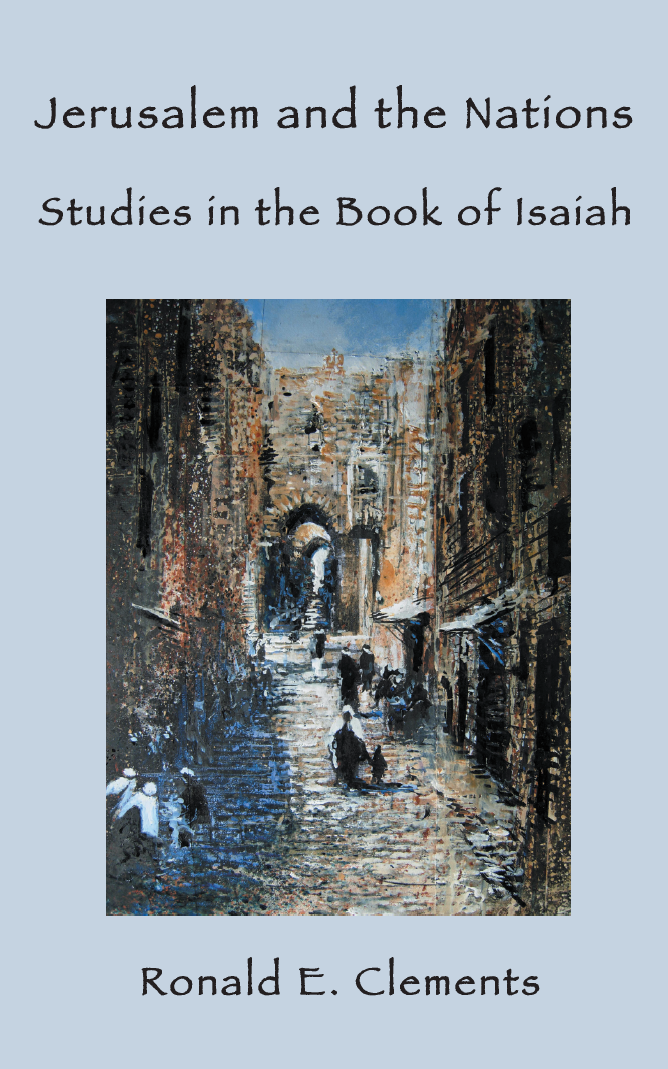Jerusalem and the Nations: Studies in the Book of Isaiah
Original price was: £50.00.£19.50Current price is: £19.50.
This volume contains the fruit of three decades of Ronald Clements’s researches on prophecy in the Old Testament.
This volume contains the fruit of three decades of Ronald Clements’s researches on prophecy in the Old Testament. In sixteen papers, seven of them not previously published, he broaches several leading questions about the origins of written prophecy in the Old Testament. A major focus is on the impact of the events of 701 BCE on the formation of the Isaiah book as a whole and the rise of Jerusalem as a centre of religious hope.
Further studies deal with the role of the Isaiah book in current biblical interpretation and the failure of twentieth-century interpreters to explain its unity. Other subjects concern ideas of divine providence, theodicy, and the links between ancient scribal methods of book formation and canonical authority. Special attention is given to the attempts to retain traditional Christian approaches to a book, the interpretation of which has been greatly transformed by modern critical study.
Additional information
| table of contents | Part I. Prophecy in New Perspective 1. Prophecy Interpreted: Recent Study of the Prophetic Literature 2. Max Weber, Charisma and Biblical Prophecy 3. Isaiah: A Book without an Ending? 4. Written Prophecy: The Case of the Isaiah Memoir. Isa. 6.1–8.16 Part II. Isaiah and Jerusalem’s Deliverance in 701 BCE 5. The Politics of Blasphemy: Jerusalem and the Threat of Imperialism. 6. Isaiah’s Prophecies and Hezekiah’s Alliance with Egypt. Isa. 28.1 – 31.9. 7. Sennacherib and Hezekiah (1) The Saving of Jerusalem. Isa. 36-37. 8. Sennacherib and Hezekiah (2) The Saving of the King. Isa. 38-39. 9. The Historical Origin of the Account of Jerusalem’s Deliverance 10. The Literary Context of the Account of Jerusalem’s Deliverance Part III. The Book of Isaiah in a Persian Context 11. Isa. 14.24-27. An Important Passage Reconsidered 12. Isaiah 53 and the Restoration of Israel 13. A Light to the Nations.. Isa.60.1-22 14. Zion as Symbol and Political Reality 15. Isaiah 1 as Introduction to the Book 16. Epilogue. The Legacy of Apocalyptic |
|---|---|
| author | |
| authors | |
| editors | |
| isbn | |
| list price (paperback) | |
| page extent | |
| publication | |
| publication date | |
| series | |
| table of contenta | |
| version |


Bo H. Lim, Review of Biblical Literature. –
Clements has long been a key figure in Isaianic studies, and he played a pivotal role in revitalizing research into the unity of the book of Isaiah, so this latest work is an important contribution. For a book containing previously published essays, its significant amount of new research and cohesiveness of argument justifies its publication. For those interested in the composition of Isa 36–39 and the development of the deliverance of Jerusalem tradition within ancient Israel, this book is a must read … The work cannot be ignored by Isaianic scholars and those interested in role of the Zion tradition in ancient Israel. While this book is written primarily for specialists, certain chapters would serve as a helpful introduction to key issues of Isaiah study for students.
Brad E. Kelle, Religious Studies Review. –
This collection of essays is a mixture of Clements’s previously published works, significantly revised articles, and new studies centered on three topic areas concerning the book of Isaiah. The sixteen essays share the conviction that the older scholarly division of Isaiah into two or three separate works was misguided and has undervalued the book’s holistic literary and theological dimensions… Most of the articles throughout the volume are dominated by some form of redactional analysis concerned with the stages of the growth of the book of Isaiah and its various traditions. The volume will make an important addition to resources for advanced students and scholars working on Isaiah in particular and prophecy in general.